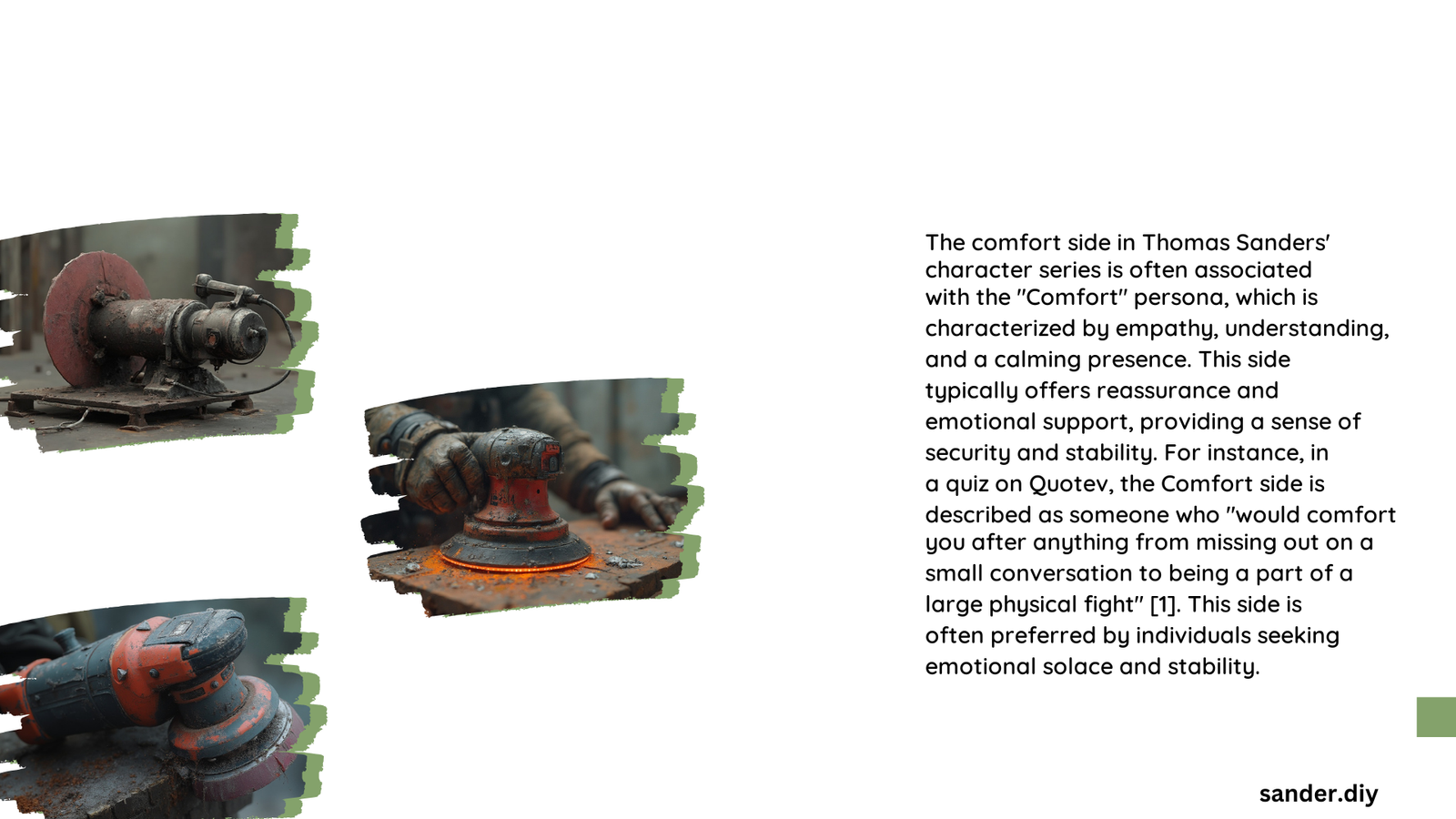Woodworkers and DIY enthusiasts often struggle with tool comfort during extended projects. Understanding which sander side provides maximum ergonomic support can significantly reduce hand fatigue, improve precision, and enhance overall work experience. This comprehensive guide explores the critical aspects of sander comfort, revealing design innovations that transform user interaction with power tools.
What Makes a Sander Comfortable?
Ergonomic Design Fundamentals
Comfort in sanders isn’t just about soft grips—it’s a complex interplay of multiple design elements:
| Design Element | Impact on Comfort |
|---|---|
| Grip Texture | Reduces slippage and hand strain |
| Weight Distribution | Minimizes muscle fatigue |
| Vibration Absorption | Prevents nerve and joint stress |
Key Comfort Features to Evaluate
- Handle Shape
- Contoured palm design
- Soft rubber overmolding
-
Anatomically aligned grip angles
-
Material Technology
- Composite base housings
- Shock-absorbing grip materials
- Anti-vibration internal mechanisms
How Do Professional Sanders Achieve Comfort?
Professional-grade sanders like the Dynabrade DYNORBITAL® EXTREME demonstrate advanced comfort engineering:
- Integrated Comfort Platform: Provides dedicated wrist support
- Soft Grip Co-molding: Combines rigid base with cushioned exterior
- Vibration Reduction Technology: Minimizes operator fatigue
What Factors Determine Sander Comfort?
Several critical factors contribute to overall sander comfort:
- Grip Ergonomics
- Palm-fitting contours
- Textured surfaces
-
Balanced weight distribution
-
Vibration Management
- Low m/s² vibration levels
- Internal dampening systems
- Shock-absorption mechanisms
Practical Recommendations for Choosing Comfortable Sanders
When selecting a comfortable sander, consider:
- Grip circumference matching hand size
- Weight under 3-4 pounds
- Rubber or soft-touch grip materials
- Adjustable handle positions
- Built-in vibration control systems
Expert Tips for Maximizing Sander Comfort
- Test multiple sanders before purchasing
- Wear anti-vibration gloves
- Take regular breaks during extended use
- Maintain and clean tool grips
- Replace worn grip surfaces
Technical Insights into Sander Comfort
Modern sanders incorporate advanced materials and design philosophies:
- Composite Materials: Lightweight yet durable
- Ergonomic Engineering: Computer-aided design
- Human Factors Research: Biomechanical optimization
Conclusion: Beyond Physical Comfort
Sander comfort transcends mere physical design—it represents a holistic approach to user experience, combining engineering precision with human-centric innovation.
References:

